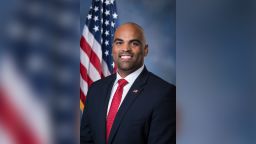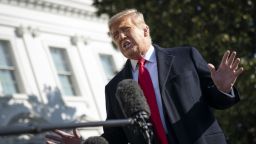Editor’s Note: Colin Allred is a Democratic representative from Texas’ 32nd congressional district. The views expressed in this commentary are his own. View more opinion on CNN.
On January 6, I woke up knowing it was going to be a difficult day, but I had no idea that it would take the harrowing turn that it did.
In fact, I was actually somewhat optimistic when the day began. Jon Ossoff and Raphael Warnock, hours before, had won their US Senate runoffs in Georgia, giving Democrats control of the Senate. Weeks earlier in November, in Texas and throughout the country, turnout in the 2020 presidential election had been historic – with people of all backgrounds and political persuasions making their voices heard despite fearmongering and misinformation.

Then that day, as expected, President Donald Trump’s allies Rep. Paul Gosar of Arizona and Sen. Ted Cruz of Texas objected to the Arizona results – attempting to prop up the lie that the 2020 election was stolen.
That’s when I started getting texts from friends and family asking where I was, and if I was safe. A violent mob of Trump supporters was descending on the US Capitol. I texted my wife, “Whatever happens, I love you.” I was prepared for the worst.
Many people don’t know just how close we came to a more catastrophic event with even further loss of life. Thanks to the bravery of US Capitol Police and DC Metro Police, my colleagues and I were safely evacuated. I will be forever grateful for the service of these officers.
I believe that the most important thing that happened that day is not a failed attempt to reject the results of a free, fair and secure election, but Congress acting in a strong bipartisan fashion to reaffirm our democracy later that night. Democracy held, but it showed dangerous signs of fracturing.
As a member of the House Foreign Affairs Committee, I have spoken with representatives from allied nations since that day. As the world watched the attempted coup, many wondered whether democracy in the US would survive.
The events of January 6 fit into a broader authoritarian movement across the world, which is attempting to undermine and weaken western democracies. Powerful autocracies like Russia and China continue to crack down on democratic movements at home and to export anti-democratic propaganda and technology abroad, while former secular democracies like Hungary, Turkey and Poland continue to experience democratic backsliding.
And now the US joins that list of democracies in decline, according to European think tank International IDEA.
We’ve seen this before. In the 1920s, 1930s and 1940s, authoritarian movements swept the most powerful countries in the world, from Germany to Italy, Spain to Japan – and it was the United States which helped to lead the world in an effort to defeat these movements.
Once again, the United States must lead the way out of this new era of authoritarianism.
To Democrats, guaranteeing voting rights is a critical part of safeguarding democracy. However, we also recognize that our efforts to do so will not succeed without support from Republicans and Independents alike.
2022 is the year that the pro-democracy forces that believe in this country – regardless of party affiliation – must come together to act. Like Rep. Liz Cheney of Wyoming, a Republican member of the January 6 House select committee, other Republicans must be willing to reject Trump’s toxic brand of politics and stand up for democratic principles.
Accountability for January 6, though important, isn’t enough. As we saw in Texas and other states Republican-controlled legislatures were all too willing to go along with the “Big Lie” and make it harder for many Americans to cast their ballot.
As former President George W. Bush said in a September speech marking the 20th anniversary of the 9/11 terrorist attacks, “There is little cultural overlap between violent extremists abroad and those at home. But in their disdain for pluralism, in their disregard for human life, in their determination to defile national symbols, they are children of the same foul spirit, and it is our duty to confront them.”
It was under Bush that the Voting Rights Act was last reauthorized in 2006 with near-unanimous bipartisan approval in the House and Senate.
That legacy of bipartisan support for democracy is one crucial reason why the Senate needs to pass the Freedom to Vote Act, which will end partisan gerrymandering, secure our elections and protect voting rights. The House is ready to act, as we did with the John Lewis Voting Rights Act last summer. Despite hurdles within the Senate to changing the filibuster, the Senate must use any and all options it can to get this done. This bill is too important to let an arcane Senate rule stop the work we need to do.
Our democracy is at stake. Let’s fight to protect it, together.


